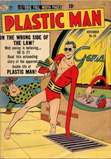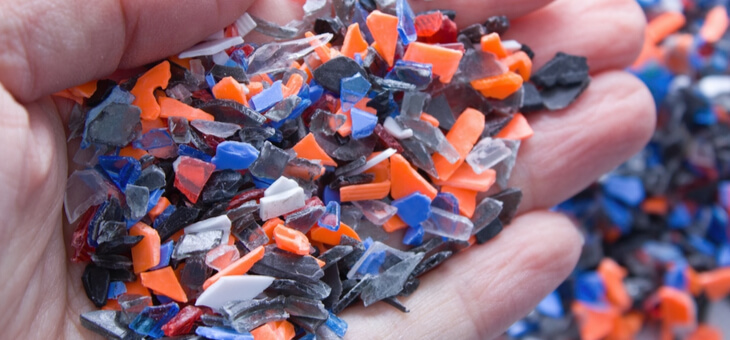In 1941, Quality Comics (later acquired by DC Comics) introduced a new superhero known as Plastic Man. ‘Real’ name Patrick O’Brian, he had been a small-time crook until he was abandoned by his gang after being shot.
His open wound was accidentally doused with an ‘unknown chemical’ that entered his bloodstream, allowing him to mould himself into any shape. In typical comic book fashion, Plastic Man vowed to give up crime and use his newly acquired plasticity for good.

Fast forward 80 years, and life, to a degree, is now imitating art, with the news that microplastics have been detected in human blood for the first time. It is, however, unlikely that microplastics in our bloodstream will turn us all into superheroes, and now the task for scientists will be answering the question of what impact this development will have on our lives, as individuals and as a society.
Read: Microplastics found in soil samples, but health impacts unknown
A new report, Discovery and quantification of plastic particle pollution in human blood, published in Environment International, analysed the blood of 22 healthy human donors, and found that 17 “carried a quantifiable mass of plastic particles in their blood”.
The analysis identified four high production volume polymers applied in plastic – polyethylene terephthalate, polyethylene and polymers of styrene (which includes polystyrene) – in blood for the first time.
Though admittedly a small sample size, the findings are a concern, particularly given the limited research done to date on the potential effects of plastic within our bodies. The study advises that: “An understanding of the exposure of these substances in humans and the associated hazard of such exposure is needed to determine whether or not plastic particle exposure is a public health risk.”
Read: Seven ways to tackle plastic waste
Another paper published last week indicates that micro and nanoplastics (MNPs) – ingested in the diet – move through the gastrointestinal tract where they have been shown to interact with the microbiome. This MNP exposure was associated with a decrease in the diversity of the gut microbiome as well as taxonomic changes in mice.
Professor Dick Vethaak, an ecotoxicologist at Vrije Universiteit Amsterdam in the Netherlands, and a co-author of both papers, said: “Our study is the first indication that we have polymer particles in our blood – it’s a breakthrough result.”
He said the findings were a cause for concern. “It is certainly reasonable to be concerned. The particles are there and are transported throughout the body,” he said. “We also know in general that babies and young children are more vulnerable to chemical and particle exposure. That worries me a lot.”
Read: Scientists sound alarm over microplastics in common food
With the production of plastic set to double by 2040, the clock is already ticking. But even as we ponder the potential effects of plastic in our bodies, scientists are looking at ways to filter it out.
Dr Rajani Srinivasan, at the University of Texas, and her colleagues have created sustainable, plant-based ‘goo’, made from ingredients such as okra and fenugreek, which can effectively remove microplastics from water as an industry standard.
The work being done by Dr Srinivasan and others suggests that our future plastic superheroes are unlikely to be made of polymer as Plastic Man is, but will be researchers and scientists who help save us from plastic.
If you enjoy our content, don’t keep it to yourself. Share our free eNews with your friends and encourage them to sign up.

